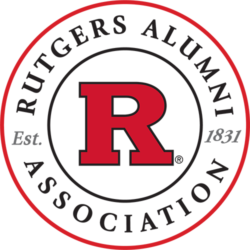EXECUTIVE DEAN’S MESSAGE
PETER MARCH
RUTGERS SCHOOL OF ARTS AND SCIENCES
I hope you and your loved ones are healthy and safe.
I write to you as we bring down the curtain on a year that might well be one of the most challenging in the history of Rutgers University.
The campus remained mostly empty since last fall and the majority of undergraduate courses were taught remotely. Our Convocation, which typically follows University Commencement in the stadium, was virtual, as it was in 2020.
Yet, we look with great hope and cautious optimism to the fall of 2021.
Rutgers President Jonathan Holloway and the university chancellors are preparing for a return to campus with strong protections for the safety and health of our students, faculty, staff, and host communities. This plan will have to follow guidance set by state and federal guidelines.
Nevertheless, we at the School of Arts and Sciences—Rutgers largest and most comprehensive school—are thrilled to return to the Banks of the ole Raritan. We will do our part to help Rutgers move in a safe, careful, and deliberate manner toward repopulating our campuses and making Rutgers once again the vibrant, student-centered community that it has been since the 1700s.
Despite the challenges posed by the pandemic over the last three semesters, I have been consistently inspired by our School’s response to this crisis. I wrote last year of the resilience of faculty and students in managing the transition to remote education. Now I want to discuss our commitment to research—a fundamental component of Arts and Sciences—which often cannot be done easily via Zoom.
Consider, for example, Monica Driscoll, a Distinguished Professor of Molecular Biology and Biochemistry who runs one of the largest research labs at Rutgers University. Her research cuts across an array of topics—including Alzheimer’s Disease and ALS—drawing extensive federal funding from the National Institutes of Health.
Over the last year, the Driscoll team has worked out a system that allows experiments to continue while respecting social distancing protocols. Researchers stagger their lab time across day and night and have spread out through the Nelson Biological Laboratories. If by chance you had ventured into Nelson this year, you would have seen dedicated researchers at their benches, masks on, ample space from their neighbors, and tarps hanging from the ceiling.
It is an operation that has taken much forethought, patience, and cooperation. And it is emblematic of the spirit that runs through the entire school.
The lab manager, Mary Anne Royal, who has worked with Professor Driscoll for more than 20 years, puts it this way:
“This year has been all about finding the way to do what we love in spite of another hurdle. Faced with this incredible challenge, we did what we always do: We talk to each other, we collaborate, and we figure it out.”
I suspect this is true for all of us. Whether in our work lives or home lives, we have all done our share of “figuring it out.”
I also see this in the partnership between SAS and RAA. Although the pandemic has prevented us from gathering together, you have nonetheless stepped forward to assist the School of Arts and Sciences in ways that matter greatly to our community of faculty, staff, and students. You generously contributed to our scholarship funds on Rutgers Giving Day. You participated in virtual Convocation, recording inspirational messages to our graduates. And you have shared some of the great examples of our graduates’ achievements on your website and social media communities.
The School of Arts and Sciences is proud to be the principal constituent school for the Rutgers Alumni Association, and we feel fortunate to have the RAA become the official alumni association for SAS.
Together we are going to accomplish great things.
I cannot wait until we can greet each other in person. I hope to see you all at a tailgating event this fall.
Sincerely,
Peter March

